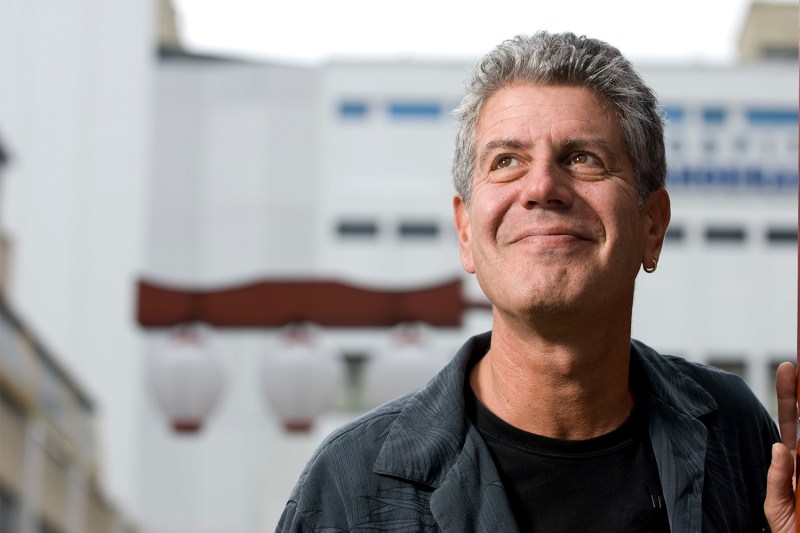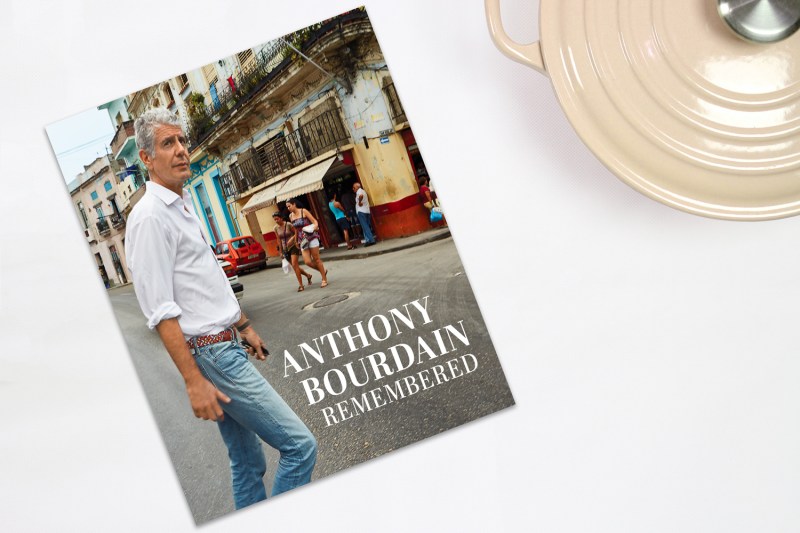Anthony Bourdain died just over a year ago and it still stings. The chef, author, personality, former addict, and philosopher of sorts left a gaping hole not only in the culinary world but in the world in general.
The guy preached truly exploratory travel. He wanted you to open your mouths and minds anytime you packed a bag or reached for your passport. He wanted you to question stereotypes, whether they involved authentic dishes or geographic destinations.

Bourdain’s highlight reel for Parts Unknown alone is a lengthy one. There was the time he visited Iran despite America’s troubled relationship with the country, only to be treated like royalty. Or the time he clanked beers with President Obama, sporting a noticeable twinkle in his eye. He went on any number of Heart of Darkness-like treks into some jungle backcountry to become a lovable local for a few blurry, stomach-filling days.
The great food minds convince you to not just step out of your comfort zone but blow the whole thing up. The late great Jonathan Gold (of LA Times fame) did this, persuading an entire generation of city dwellers not to overlook what’s being cooked in, well, the overlooked places. Strip malls, food carts, corner stores, and flea markets can house some of the most memorable flavors on the planet. Ratings and narrow-minded press be damned, Gold and Bourdain often thought, there’s real quality beyond what gets the buzz.
Perhaps best of all, Bourdain was anti-bullshit. And let’s be fair, there’s a fair amount of it in the restaurant business. He demanded better of us than to just slap the overused “authentic” label on our inspired entrees. Bourdain didn’t have patience for imposters because he had the luxury of almost always going straight to the source. We may not all be able to travel as extensively as he did, but we certainly can learn from his countless miles logged (and filmed).
Bourdain’s native New Jersey just created an official food trail for the guy. A commemorative book, too, was just released by CNN. I’d like to think the best way to honor him is to do as he did: Get lost, try everything at least once, and carry yourself with the quiet confidence that comes from having an open mind and some semblance of manners.

Beyond the plated things, Bourdain still resonated. His late-life fame (he’s said many times that he didn’t even have a savings account until his 40s) is inspiring to every American trying to make it amid recession after recession. His coolness and humility under pressure, so often in a supremely foreign land, was a lesson in how to behave while abroad. While so many Yanks abroad were simply shouting louder English or writing off certain customs, Bourdain politely dug into his surroundings.
I found it surprising, at first, to learn that there were no drugs or alcohol in Bourdain’s body when they found him. I’ve since realized that it sort of makes sense. Immensely sad as it was, his death was pure and on his own terms. He picked a time to depart and did exactly that.
Rest in peace.


